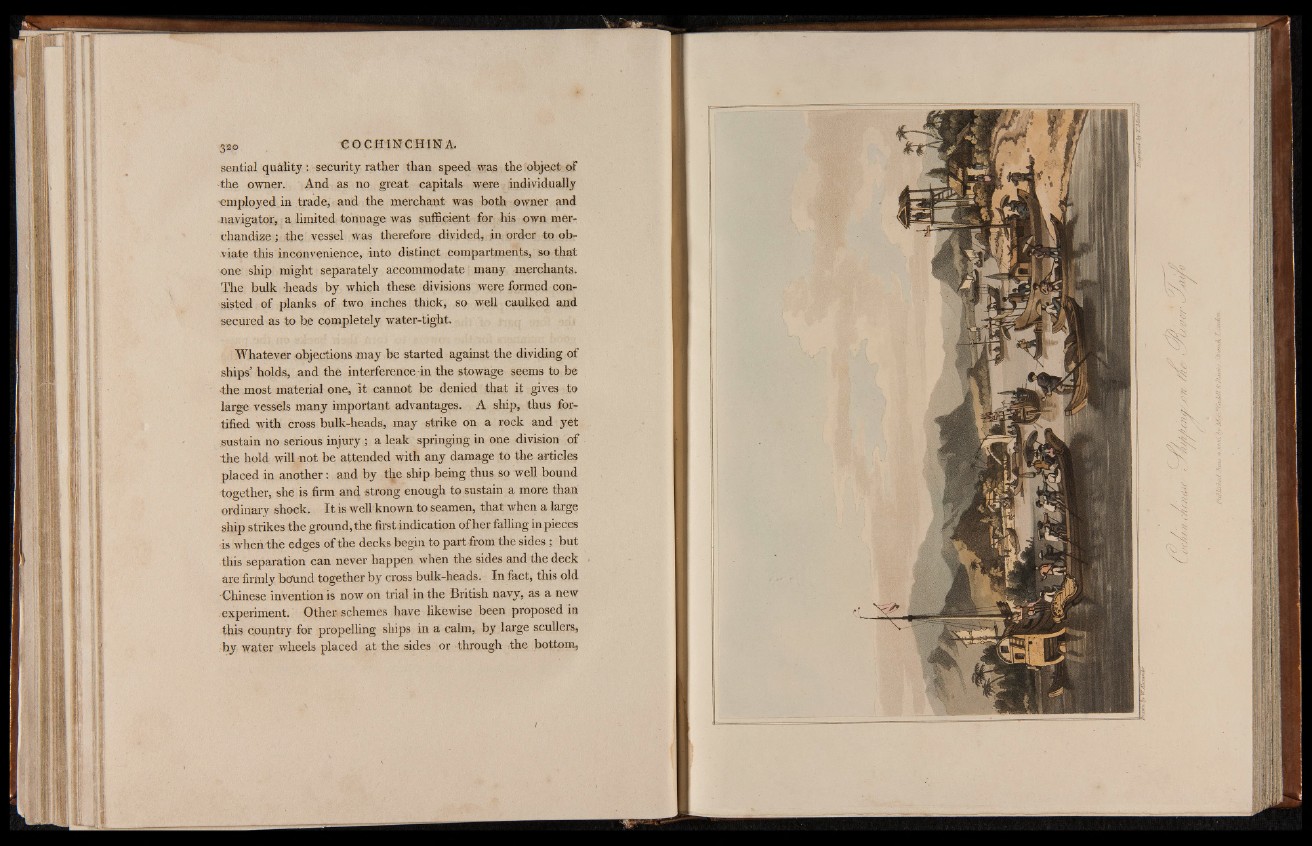
sential quality: security rather than speed was the object of
•the owner. And as no great capitals were individually
•employed in trade, and the merchant was both owner and
navigator, a limited tonnage was sufficient for his own merchandize
; the vessel was therefore divided, in order to obviate
this inconvenience, into distinct compartments, so that
one ship might separately accommodate many merchants.
The bulk heads by which these divisions were formed consisted
of planks of two inches thick, so well caulked and
secured as to he completely water-tight.
Whatever objections may be started against the dividing of
ships’ holds, and the interference in the stowage seems to be
th e most material one, it cannot be denied that it gives to
large vessels many important advantages. A ship, thus fortified
with cross bulk-heads, may strike on a rock and yet
sustain no serious injury; a leak springing in one division of
the hold will not be attended with any damage to the articles
placed in another: and by the ship being thus so well bound
together, she is firm and strong enough to sustain a more than
ordinary shock. I t is well known to seamen, that when a large
ship strikes the ground, the first indication of her falling in pieces
is when the edges of the decks begin to part from the sides; but
this separation can never happen when the sides and the deck
are firmly bound together by cross bulk-heads. In fact, this old
Chinese invention is now on trial in the British navy, as a new
experiment. Other schemes have likewise been proposed in
this country for propelling ships in a calm, by large scullers,
hy water wheels placed a t the sides or through the bottom,